‘Nude spas and lewd texts: Inside Brisbane’s elite school implosion’
It started with lewd texts and a nude spa and quickly exploded into a major private school scandal. This is the inside story of what really happened in the PMSA scandal.
QWeekend
Don't miss out on the headlines from QWeekend. Followed categories will be added to My News.
Morgan Parker was living in Dubai when the “cryptic and salacious” news from home filtered through three years ago.
Secret nude spa plotting meetings, the headlines read.
Talk of “hippy, joint-smoking garden clubs”.
Claims of privacy breaches of the details of some of Queensland’s most influential people.
All of it emanating from prestigious Somerville House, the girls’ school Parker’s daughter had started at the year before.
The high-flying real estate executive and philanthropist knew some of the players in the drama.
He was a member of the Somerville House Foundation, a fundraising body, and would attend its meetings when in Brisbane, or Skype in from his job overseeing plans for Dubai’s megabillion-dollar city centre.
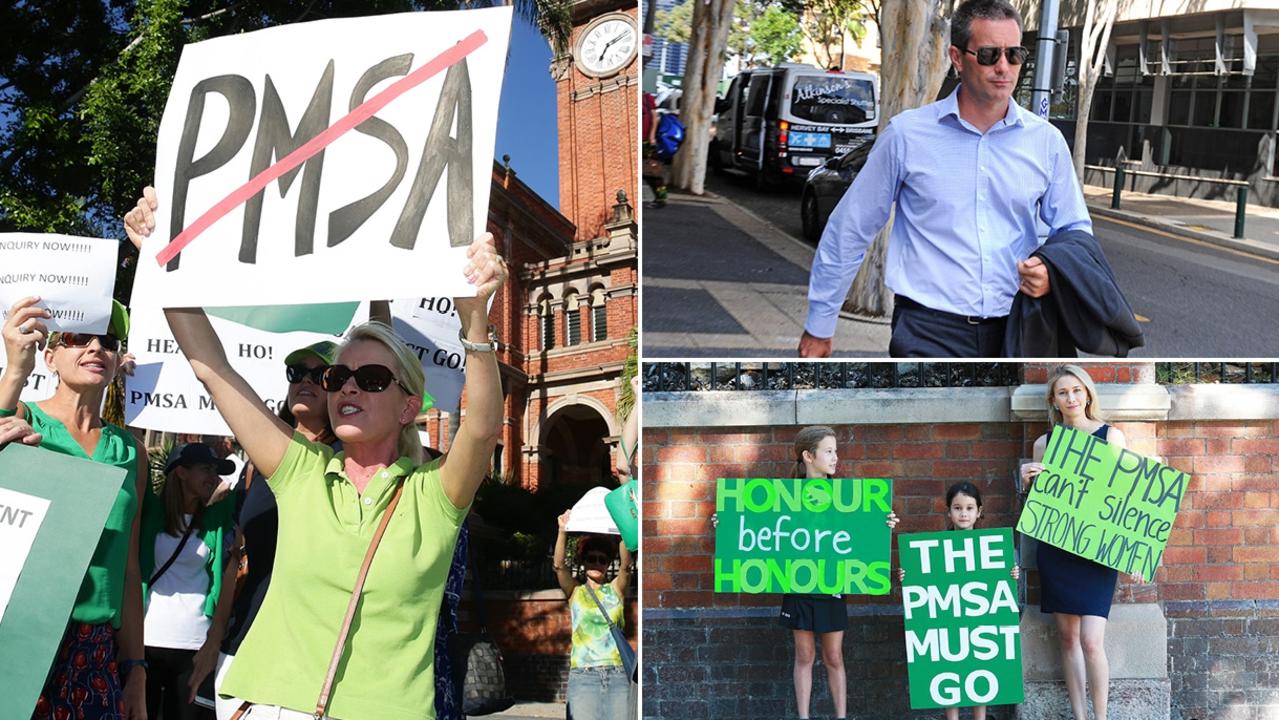
He’d met Rick Hiley, the school’s former business manager, whose curious text exchanges had got tongues wagging, and Flo Kearney, the “impressive” principal of the inner Brisbane Somerville House.
‘The VC cost me my marriage’: Keighran
The untold story of ‘warrior’ Hannah Clarke
There were lawyers and spin doctors and stories that Hiley had taken a $350,000 job with Somerville House’s owner, the Presbyterian and Methodist Schools Association, or PMSA.
There were audits, probes, protests and resignations.
And most controversially, the standing down of Kearney, despite her announcement she’d leave at the end of 2017.
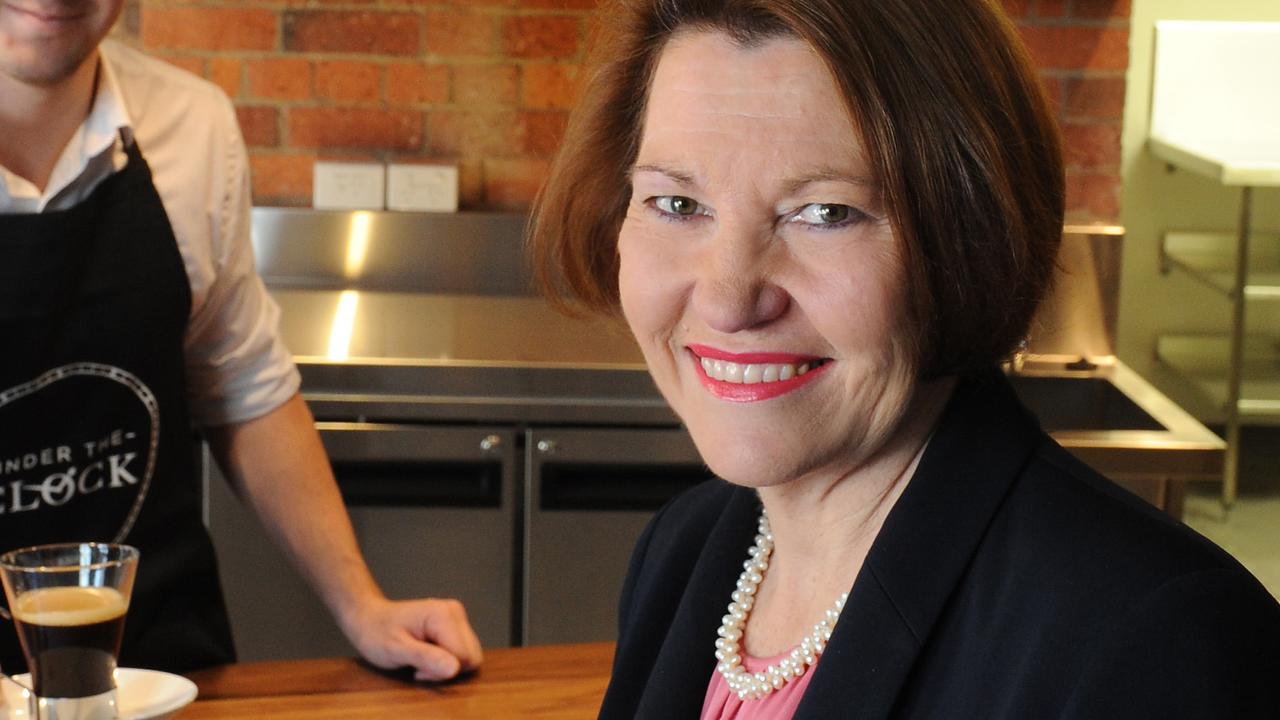
“They terminated a principal, at very short notice, in the shadows of the final academic exams,” says Parker, now back living in Brisbane and the new chair of the PMSA Board. “Sitting in the chair I’m in now, I think, ‘Wow, that was a really bold decision to make’.”
Is bold the only word he’d use?
A grin flits across Parker’s face. “There were a lot of mistakes made, I will say that.”
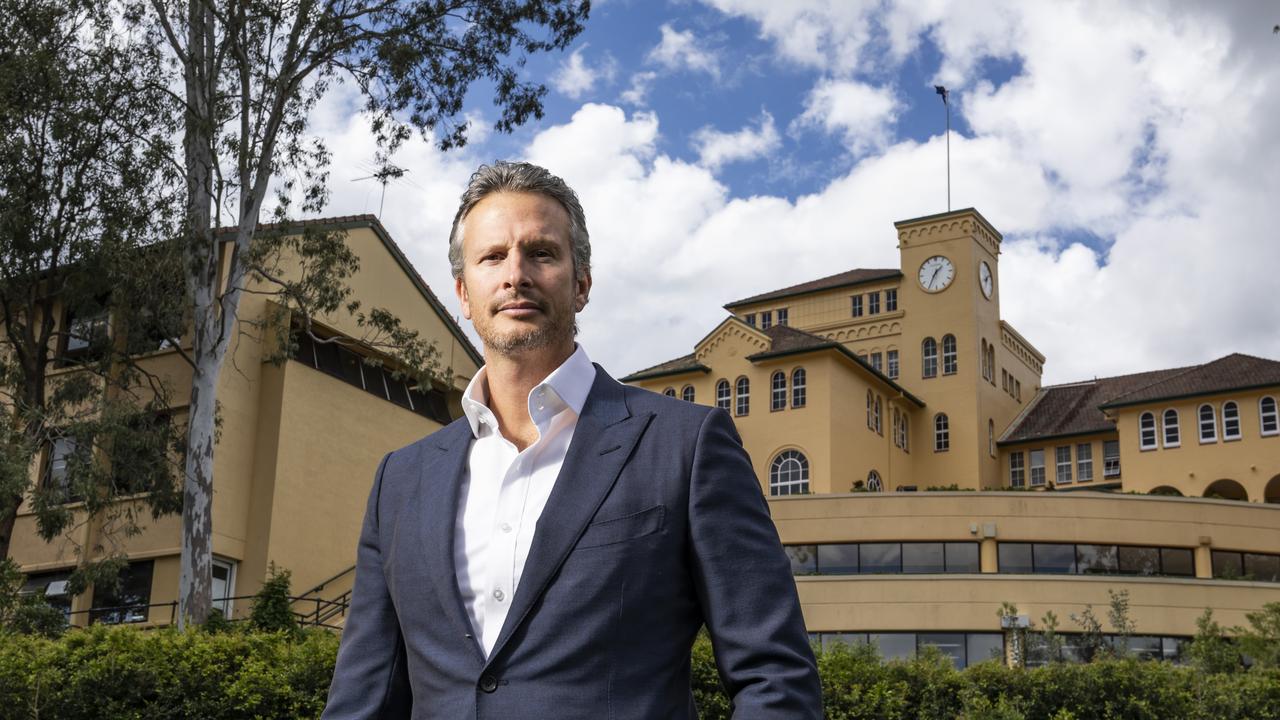
There are many twists and turns in this tale that exposed the flabby underbelly of a century-old church organisation and shone a harsh light on some of Queensland’s most elite schools. One of them catapulted Parker into the chair in March this year after joining the board in April 2018, tasking him with bringing order to a dysfunctional and archaic system of governance.
Semi-retired at 46 after 20-odd years overseas as an investment executive, Parker says the voluntary PMSA role occupies 40 hours of his week. And he’s only halfway done.
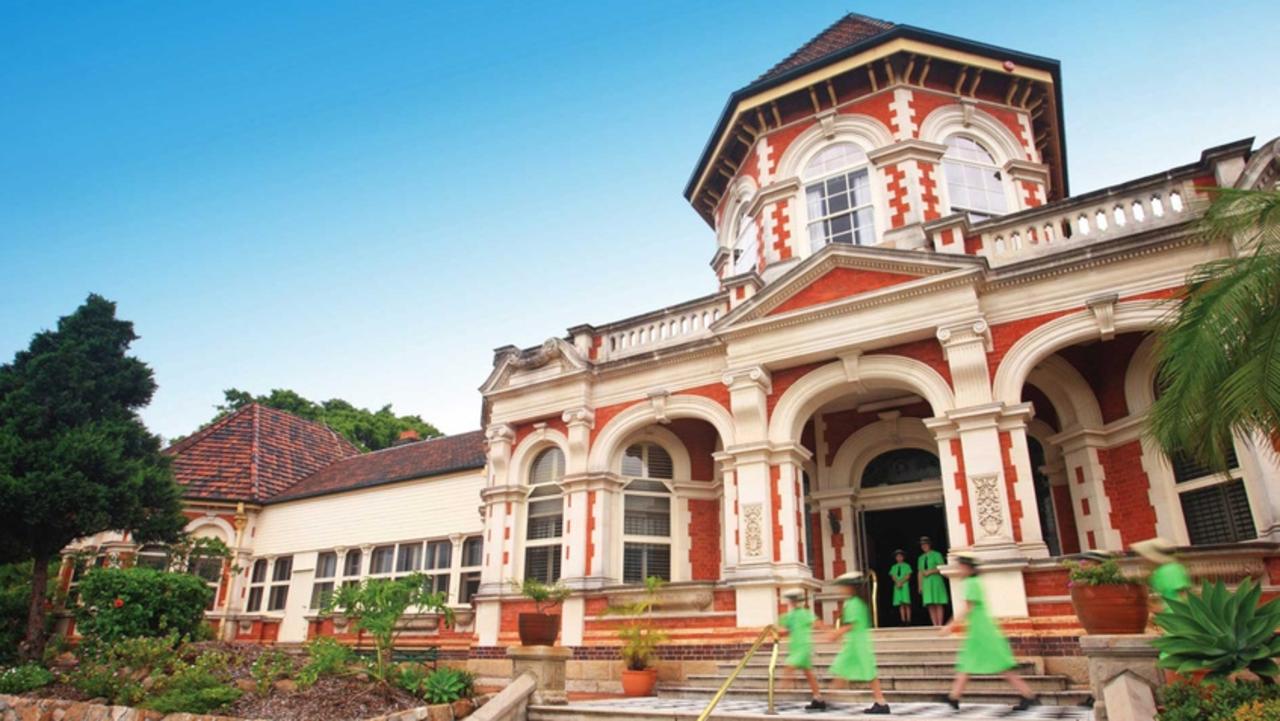
The PMSA is the owner of four schools; Somerville House, Brisbane Boys’ College (where Parker was school captain in 1991), Clayfield College and the youngest, Sunshine Coast Grammar School. It has an annual turnover of $140 million, assets worth more than $500 million, 5000 students, 1500 staff. It’s a big machine with many moving parts.
But the saga of the PMSA was about more than governance in an increasingly complex education sector. It’s about the power of that peculiarly Brisbane obsession, the old school tie.
It’s about how the PMSA’s culture of operating in the shadows led to a (bungled) attempt to assume more control. It’s about the white-hot fury unleashed when highly engaged parents paying big money to give their children a boost in life are kept in the dark.
It’s about control and influence in what was dubbed “Game of Thrones in cardigans” – and a lingering air of mistrust.
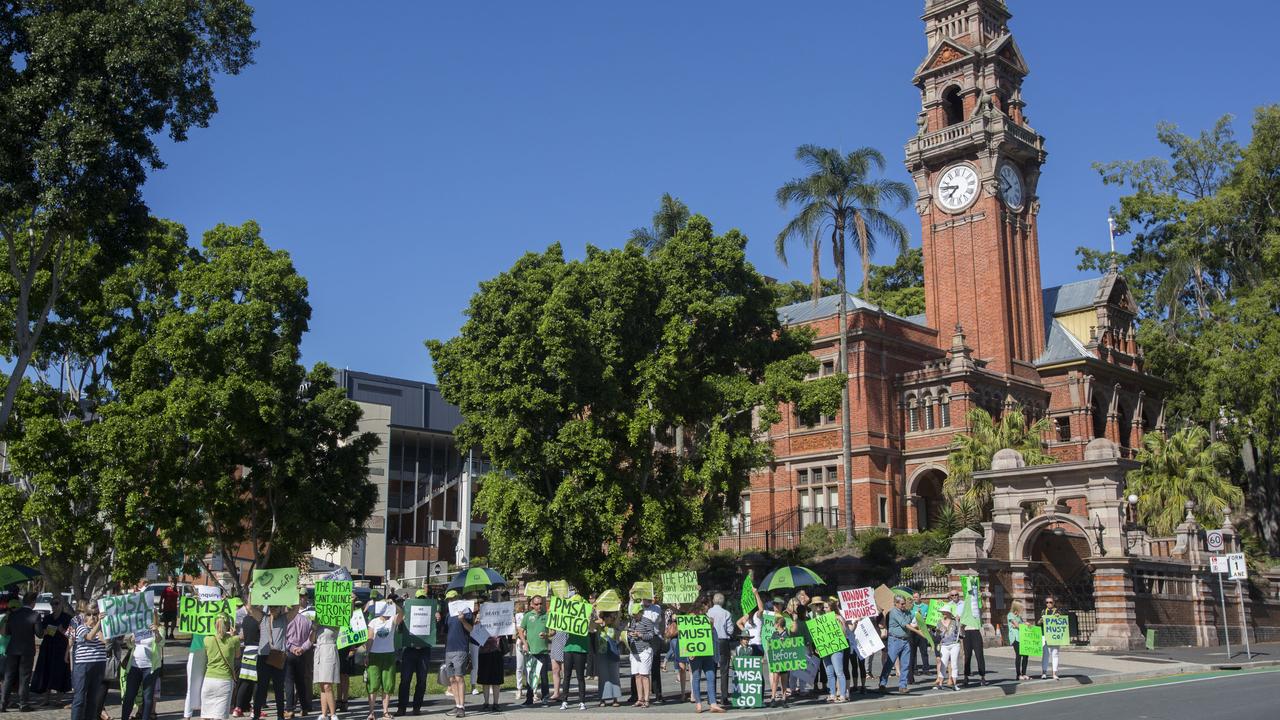
It really is hard to fathom why you would hold a meeting about religious school business in a nude spa but that is where Rick Hiley and the then PMSA chair, Robert McCall, found themselves in mid-2016.
Hiley was bashful. “I’m a prude when it comes to public nudity,” he wrote in one of his texts to McCall. McCall, a Queensland police inspector who would soon be awarded the Australian Police Medal for his dedication to the welfare and professional development of officers, assured him, “you get used to it”.
Only they know what was discussed at the spa (McCall declined to answer supplied questions and attempts to reach Hiley were unsuccessful) but text messages over an 18-month period show that a topic exercising Hiley’s mind was the carrot being dangled in front of him of a job as the PMSA’s executive manager.
“Deviously excited,” Hiley says in a text when he asks McCall for an update about the job.
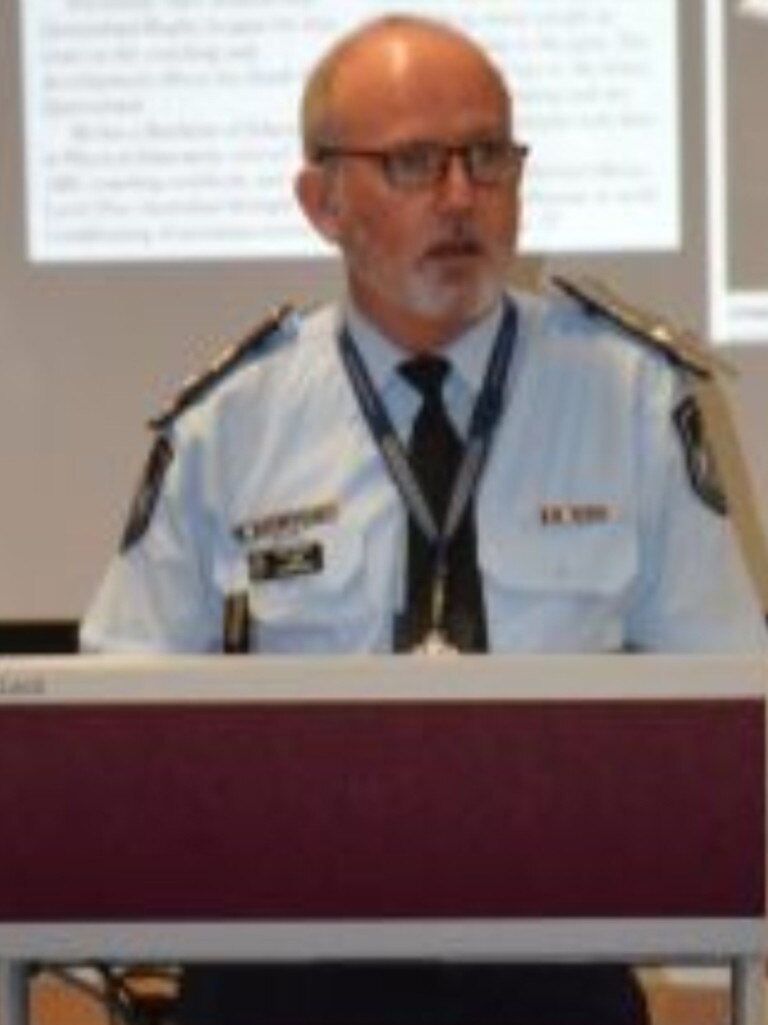
Follow up texts show an office fallout, with Hiley writing: “Had my meeting with Flo – not good at all.” And later: “Now I’m disloyal and our relationship will be fractured permanently if I take the job.”
These texts and more were made public in October 2017, unearthed at Somerville House in late June after the alleged data breach was discovered. McCall resigned in August, with the PMSA saying in October he’d wanted “to provide a clean start for the PMSA”.
Hiley, however, had started the PMSA job in early June and was still there. In an internal probe overseen by Kearney, he admitted downloading the files in the days before he left Somerville House.
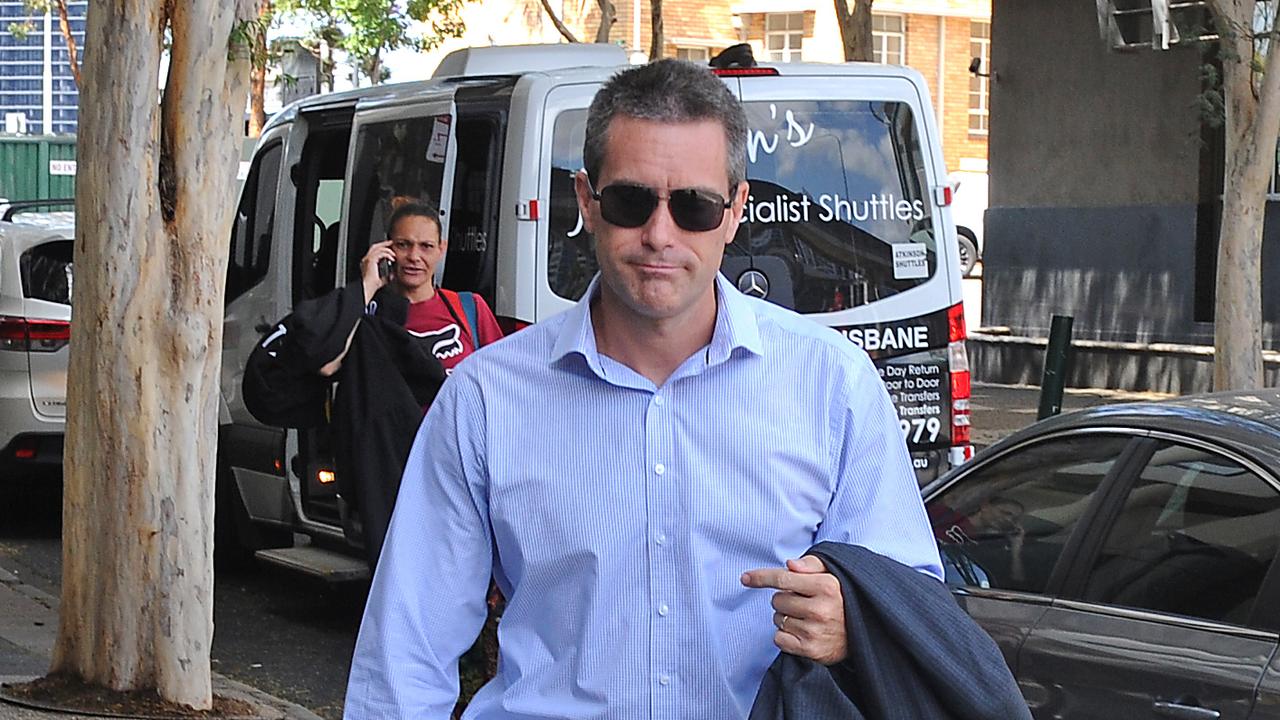
The PMSA cleared Hiley of wrongdoing, and said the files had been destroyed. On October 10, Kearney resigned. The powder keg ignited.
But something else is brought to light in the chaos. Something less titillating than nude spas and office warfare but of wider consequence: a report from accounting giant Deloitte, commissioned in 2015 and delivered to the PMSA in early 2017 and kept secret, which proposed merging the running of the four schools.
For those who hold tight to the “brand” of the old school tie, it was a call to arms.
Chris Humphrey is one Old Boy of BBC who heeded the call. He’s a rare character in this saga because he’s prepared to talk publicly.
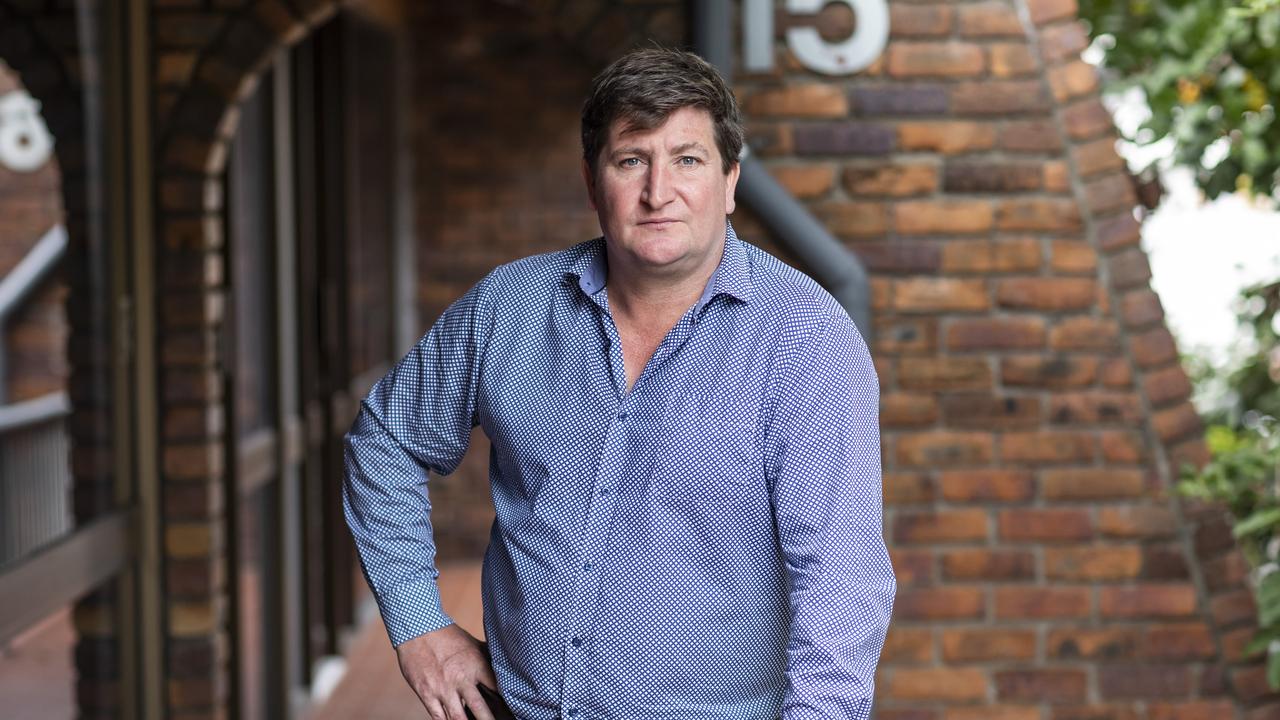
Few are. The school community is littered with parents and Old Girls and Boys used to speaking their mind – lawyers, financiers, developers – but when it comes to putting their names to their take on the PMSA and its schools, they’re a reticent bunch.
Asked why, parents – who pay up to $25,000 annually in school fees and sundries – say they fear their child will bear the brunt of reprisals.
The bruising times of 2017 are not forgotten: some parents who spoke out then pulled their children from Somerville House because of retaliation concerns.
But says Humphrey, who runs a financial planning firm: “Arguably, I was looking for this fight. I was looking to try to make change and when this Trojan horse arrived it was just too good an opportunity to not take advantage of.
The Rick Hiley/Flo Kearney thing was really just the straw that broke the camel’s back. That was the trigger for the troops to be aligned and organised,” he says.
“But really this was about a massive general discontent with the PMSA.”
This was nothing new.
There had been decades of schisms between the PMSA, parents and others connected to the schools, including a battle over a 1970s plan to centralise them.
That was defeated: the sanctity of the old school tie won. Come 2017, the PMSA argued the Deloitte report was just “a step in an ongoing process” and there were no plans to merge the schools. But the troops were already on the march.
On October 24, 2017, a meeting of the Somerville House Parents and Friends Association was scheduled. But the P&F had received a legal letter from the PMSA warning against the circulation or discussion of the Deloitte report.
The P&F did not convene. Instead, many of those gathered formed the lobby group, Beyond PMSA.
The next day, members of the PMSA, including Hiley, walked into Flo Kearney’s office and stood her down immediately. The school’s communications officer, Sarah Dreaver, was also stood down. Neither women would comment then, or now.
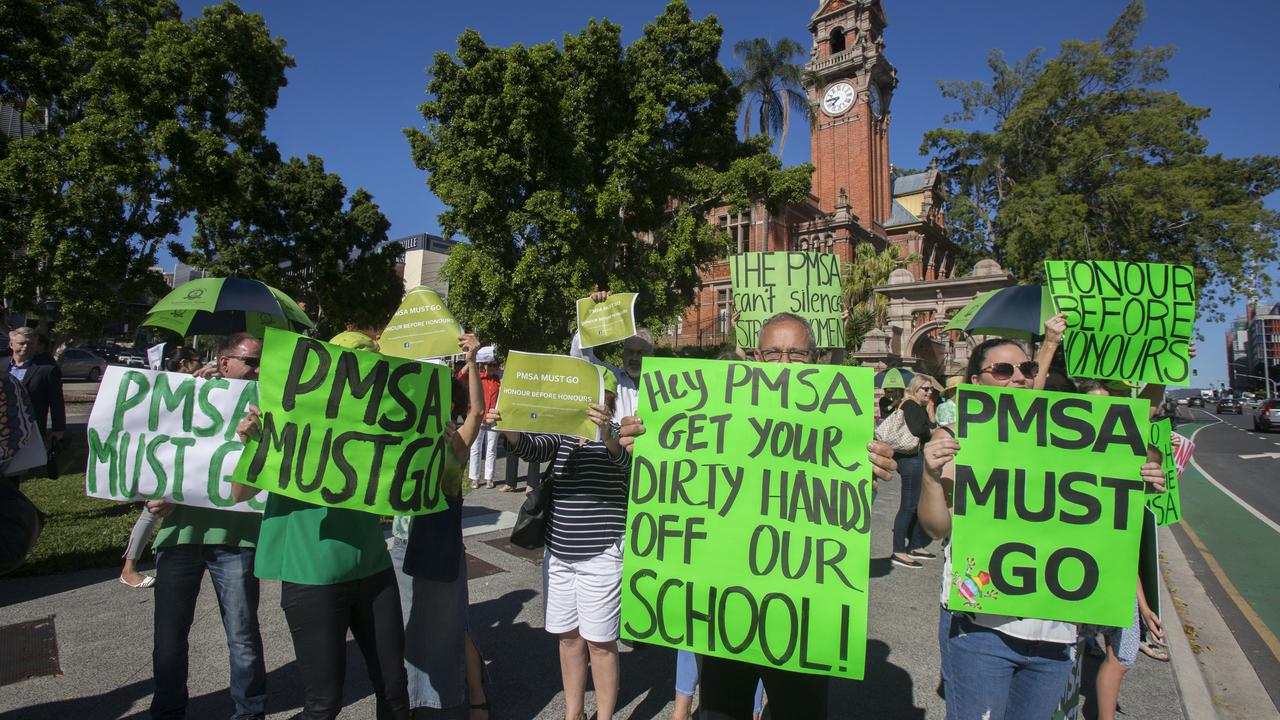
Ensuing days would see protests outside Somerville House, and passionate town hall-style meetings held.
Parents lamented the embarrassment caused to their children by the lewd texts.
They wanted Kearney back, the whole PMSA board dismissed and no talk of mergers.
The saga was a symptom, says Humphrey, of an overarching concern: that the PMSA was an antiquated, cloistered society – a group of men and women appointed by churches who were imperious, secretive, meddlesome and did not have the necessary qualifications to run a 21st- century school organisation.
“A lot of things were holding it back,” says Humphrey, who joined Beyond PMSA in the weeks after it was formed and became its president.
The PMSA and churches were “obstinately combative” during the furore. The churches’ argument that they had no influence over the PMSA Board was an assertion Humphrey and others reject.
Then there were the legal suits.
The PMSA had become embroiled in too many messy cases, such as “Wanger-gate” in which a BBC rowing coach received a $1 million payout and an apology for the damage done to his reputation after being sacked for telling boys not to twirl their “wangers”.
The financial payouts for the exits of Kearney and Hiley, who took leave in November 2017 and did not return, were a concern.
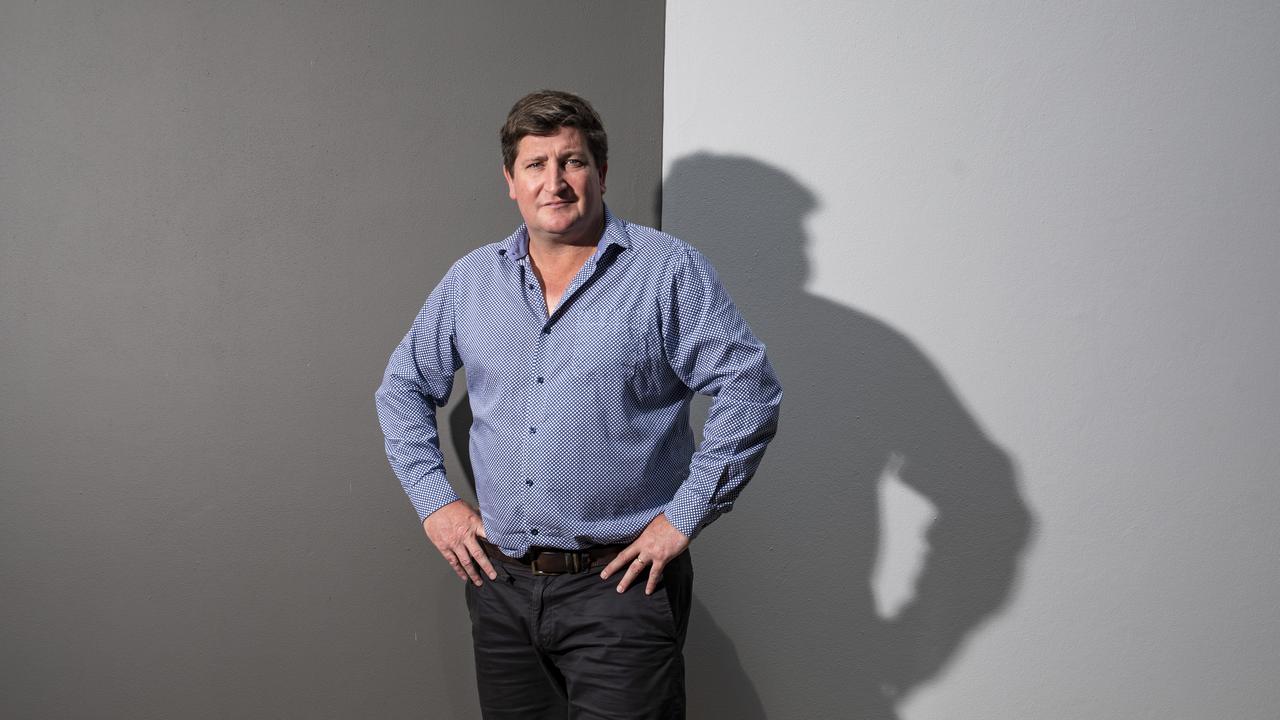
One of the biggest bugbears is that the PMSA’s financial reporting is on a consolidated basis, not by individual school.
“So as a parent, if you’re deciding if you want to send your kid to BBC, Clayfield, Somerville, Sunshine Coast, and even if you know how to read a balance sheet and financials, you can’t make a judgment call,” Humphrey says.
It led to a belief that better-performing schools were subsidising others.
Beyond PMSA argued transparency concerns could largely be overcome if the PMSA relinquished its letters patent – the document that establishes it as a body corporate under a religious educational act of 1861.
The lobby group wants it reformed under the Corporations Act, enabling greater scrutiny.
The PMSA has resisted; a bid to have the letters patent recalled by appealing to the Attorney-General, Yvette D’Ath, was dismissed.
But Beyond PMSA had big wins.
All but one of the 2017 board members have left.
“We didn’t get the knockout punch that we wanted,” says Humphrey, “but we certainly moved the goalposts.”
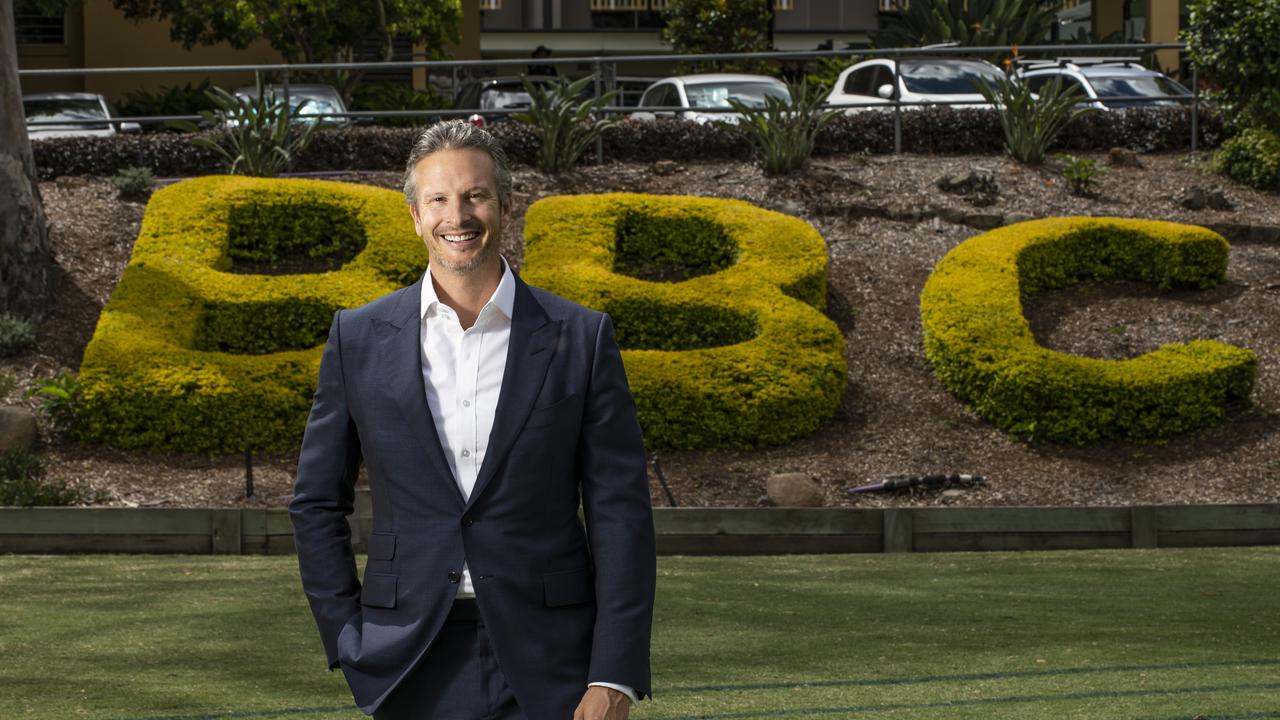
Morgan Parker does not want to throw the former PMSA “under the bus” but the vehicle metaphor he’s driving is leaving a few tyre marks.
“Everything needed to be rebuilt,” he says. “It’s like restoring an old vintage car. You need to take the whole thing apart and you need to rebuild it in the image of what people expect of 2020 and beyond.”
Parker blames complacency, a belief the schools would continue to be prominent because “we’ve always been good, people will keep coming”.
It’s a sentiment Parker heard quite a bit when he started his deep-dive into the PMSA.
But the education sector is increasingly competitive and relying on the old school tie is not a business strategy.
Parker points to state schools such as Brisbane South State Secondary College – due to open next year at Dutton Park, near Somerville House, which will have a Biomedical Science Academy in collaboration with the University of Queensland – as worthy rivals to private schools.
“You can’t just keep raising school fees endlessly – and you want to attract the best teachers,” he says.
“We’ve got three sources of revenue, federal and state government and parents. That’s it. We know government funding is declining so if you’re in independent education, you need to be able to do more with less. You cannot understate the importance of what is coming and of readying yourself financially to be able to continue to perform at this level.”
The canary in the coalmine for the PMSA was Clayfield College. Its enrolments dropped by 40 per cent in the five years to 2019 and led to concerns – fuelled by the lack of individual school balance sheets – that the other schools were subsidising it.
That’s never been the case, says Parker, and he says Clayfield is financially sound and “turning the corner”. But the demographics in Clayfield changed and the PMSA and college had been slow to adapt. Other nearby schools such as the Anglican St Margaret’s and Catholic St Rita’s had been more agile.
“You’ve got more people in the catchment but they’re now living in apartments and not huge houses with tennis courts,” says Parker. “Effective governance would have had that outward perspective that the PMSA needs,” he says.
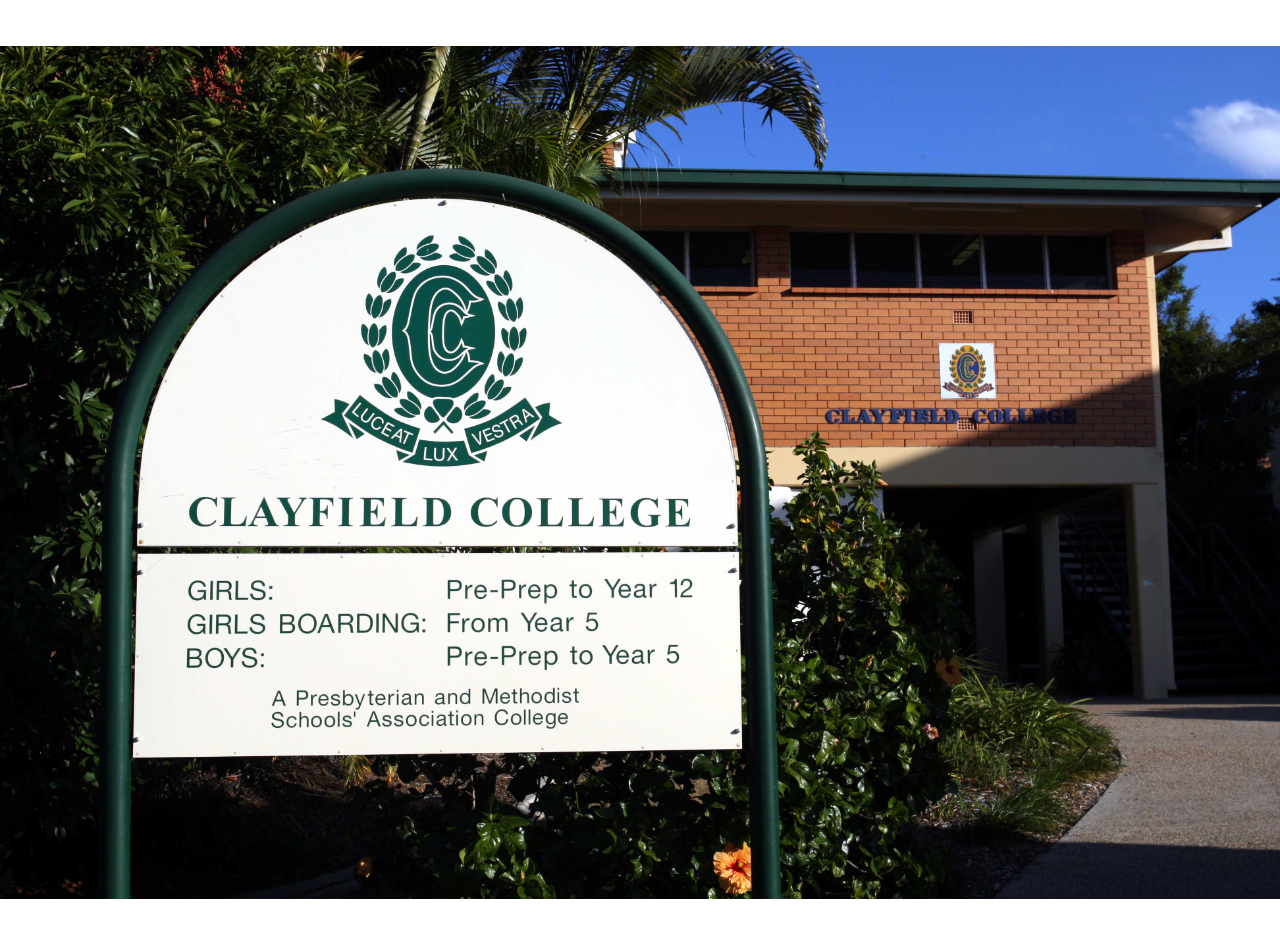
Parker says a new principal and school council is ensuring “the cost structure is commensurate with the revenue structure” and the College is embracing its niche position as a smaller, private school.
He agrees the fact the Deloitte Report was commissioned suggests the PMSA was aware it needed to modernise.
Parents and stakeholders argue Hiley was employed as executive manager to drive the report’s recommendations and Parker says “circumstantially, you could draw that conclusion”.
Hiley’s Facebook page says his PMSA job was to “progress the implementation of contemporary governance practices and opportunities for financial and corporate shared services across the group to achieve economy and improve internal control”.
Parker’s approach is not without critics, with some pointing to the boost in executives at the PMSA Group Office, which now costs about $3 million annually – or 2.2 per cent of the revenue pool. The Deloitte Report suggested similar appointments. Some argue Parker’s building a fiefdom. Not true, says Parker.
“The degree of centralisation contemplated in the Deloitte Report was seen through the lens of an accountant, without taking into context the unique identities and traditions, the needs for professional autonomy,” Parker says.
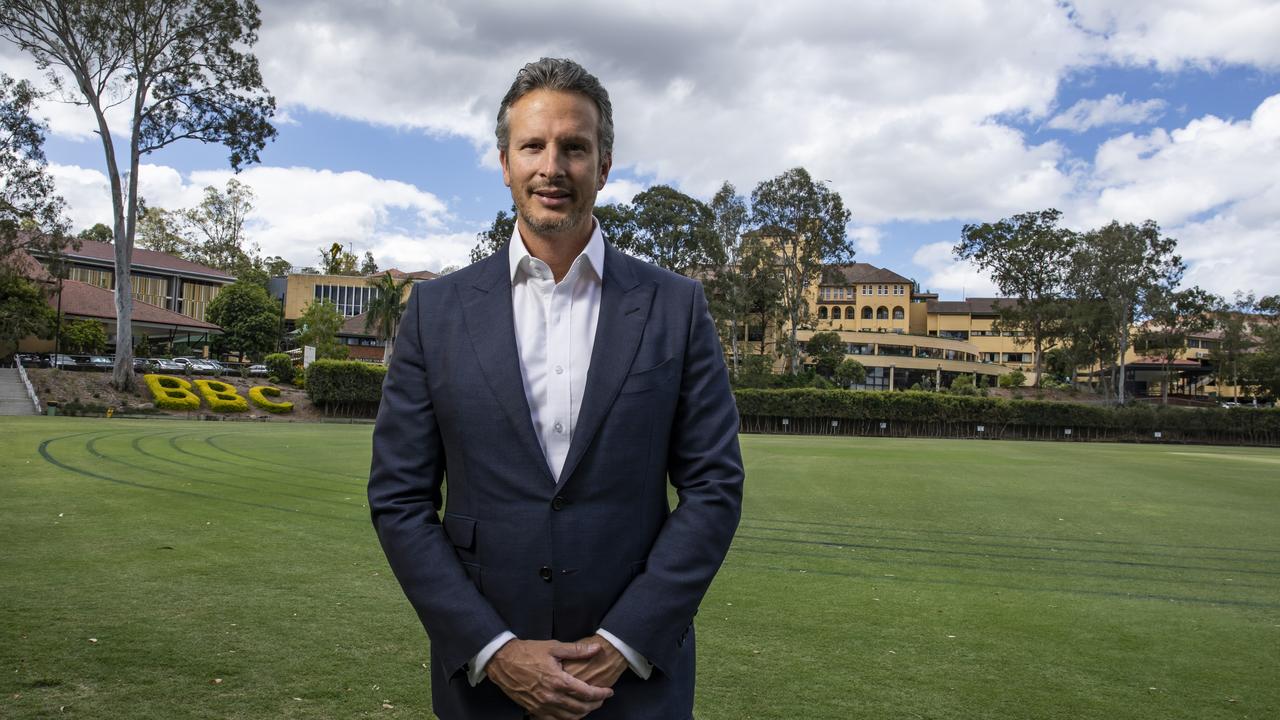
“That’s the equity of the schools, the traditions. What we’ve tried to do is cherry pick, very deliberately and strategically, those things that would yield benefit to the schools by leveraging economies of scale.”
There is now a chief executive officer, Sharon Callister, a chief financial officer, a quality and risk executive, a human resources executive, a strategy person and communications officer. “It’s capability development,” he says. “So we don’t have crises like in 2017.”
In the past, an employment lawyer was used to deal with recruitment. Now, enterprise bargaining agreements are being negotiated internally and an HR framework and information system created.
“We’ve stepped up and activated our role as owner, developed relations with the unions and not just outsourced that. It’s a huge piece of the puzzle to attract and retain good staff.”
Legal matters are being dealt with more effectively through its quality and risk procedures, Parker says.
When the PMSA received a complaint from parents of four BBC boys who were expelled for hitting a boy, it did not investigate the matter itself but notified its insurers who ordered an independent investigation.
The expulsions were downgraded to suspensions and court action by the parents dropped.
“To me that’s good governance in action.”
Plus, the PMSA is using its economies of scale to negotiate wholesale electricity agreements across the four schools and a move to green energy.
“Think of all the rooftops we’ve got,” Parker says. It’s also exploring consolidating its schools’ IT systems.
And the PMSA board has changed. The only remaining director from 2017 is Jim Demack, a partner with national legal firm, Gadens. His term is up at the end of next year.
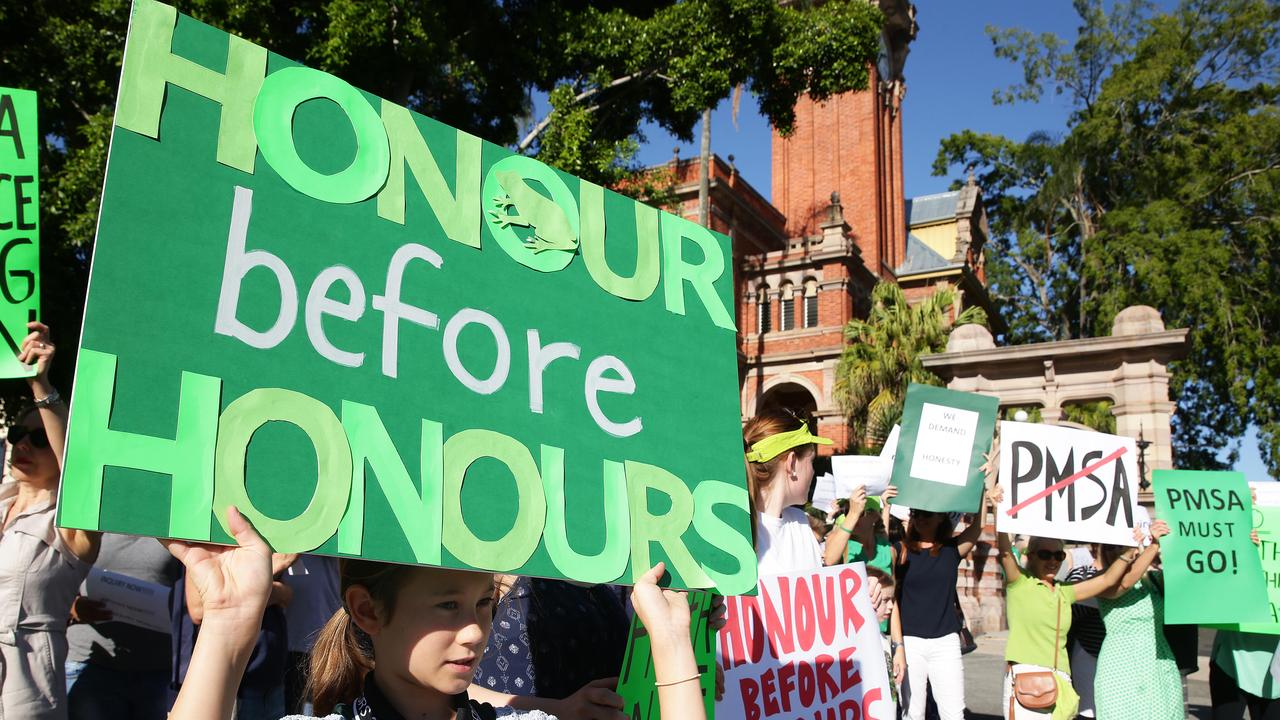
The number of possible board members was reduced from 15 to 13, but there are eight now, with three of them non-church appointed members – Jane Madden, a partner with PricewaterhouseCoopers, Bridget Cullen of the Administrative Appeals Tribunal and most recently, Greg Eddy, the chief executive of King’s College at University of Queensland.
“When I arrived on the board in April 2018, there was no one in the three non-church appointed roles, what we call the crossbench,” says Parker, a Uniting Church appointee.
“I think that’s quite instructive.”
However, he says despite what others may think, the churches’ role in the PMSA is limited. “The churches, in my mind, have wanted to support the PMSA to reform.”
Parker says the churches are open to the PMSA suggesting the type of church-appointed board member it needs to round out its expertise, which saw the selection of Peter Barker, the chief financial officer with global infrastructure firm, Cardno Ltd.
“The board is amazing,” he says.
“Where I have tried to change the culture of the organisation is to move from one that is hierarchical, where authority is imbued on you because of your role, to one based on your capability.”
There have been changes on school councils, too, with the rule enshrining PMSA board members as the chair gone. Demack, who declined to comment, is now the only PMSA board member who is head of a council – Somerville House’s – but his position is slated to be filled by a non-church pick by the end of this year.
Candidates for board and council roles are aware of the events of 2017 and are keen to know “what have you done at the PMSA to change?”
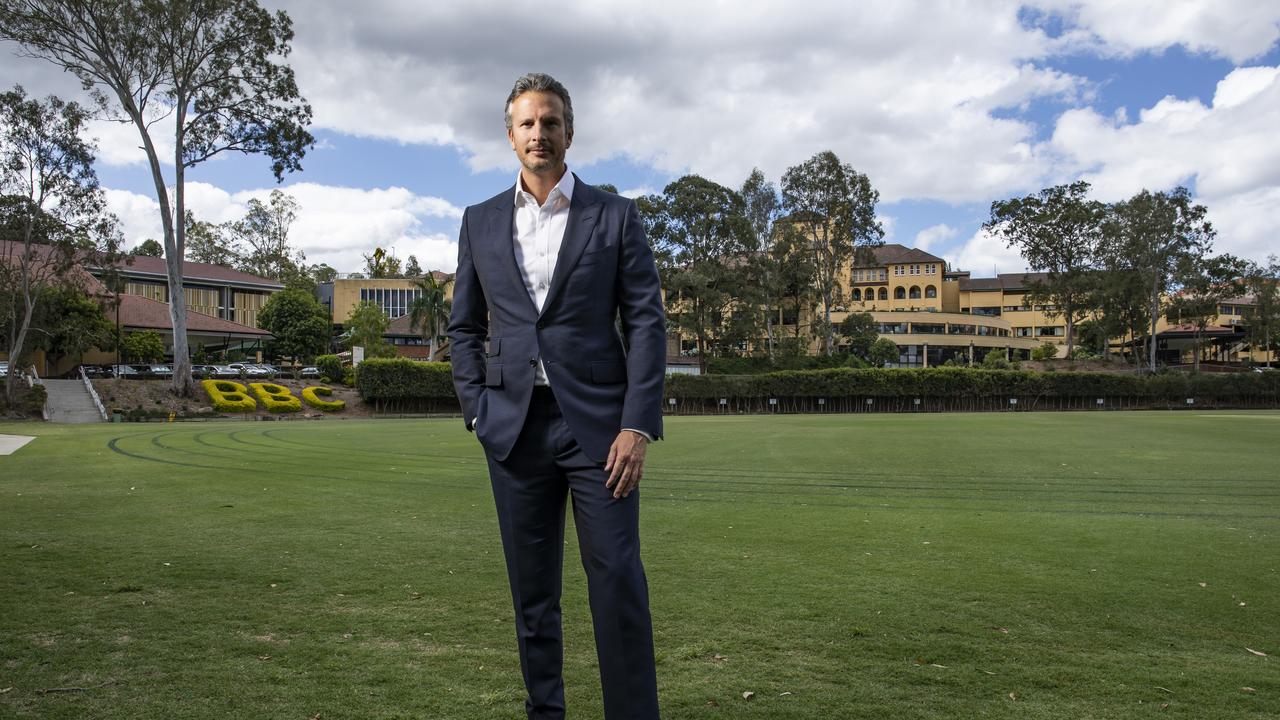
The short answer, says Parker, is it’s now focused on the bigger picture.
Past boards became too involved in the day-to-day running of the schools. “The solution was to say, ‘Hey, look over here, there’s all this other stuff to do. There’s policy making, strategic vision, financial sustainability, where’s education 50 years from now?”
But shelving letters patent and coming under the Corporations Act is not a priority.
“The things that really matter to the parents, staff and students are right here and now and we don’t have obstacles to fixing that,” says Parker.
“Merely changing the way you are incorporated does not fix the problems that existed in this
organisation.”
He understands that some stakeholders believe letters patent breeds a lack of transparency, particularly regarding finances.
He says the PMSA’s consolidated statements are required by law but as a compromise, each school’s annual report now carries pie charts showing the percentages of revenue and spending.
“It’s not the full, every single dollar that some people want, but it’s a step in the right direction,” Parker says. “The letters patent looks like an impediment to trust building. It’s not. Being better builds trust.”
That’s not to say the structure will not change.
He returns to his vintage car analogy.
Once the PMSA is rebuilt, with new drivers and navigators, then it can look at letters patent. “It’s a live issue but we’re focusing on the things we can do right now.
And they are numerous.”
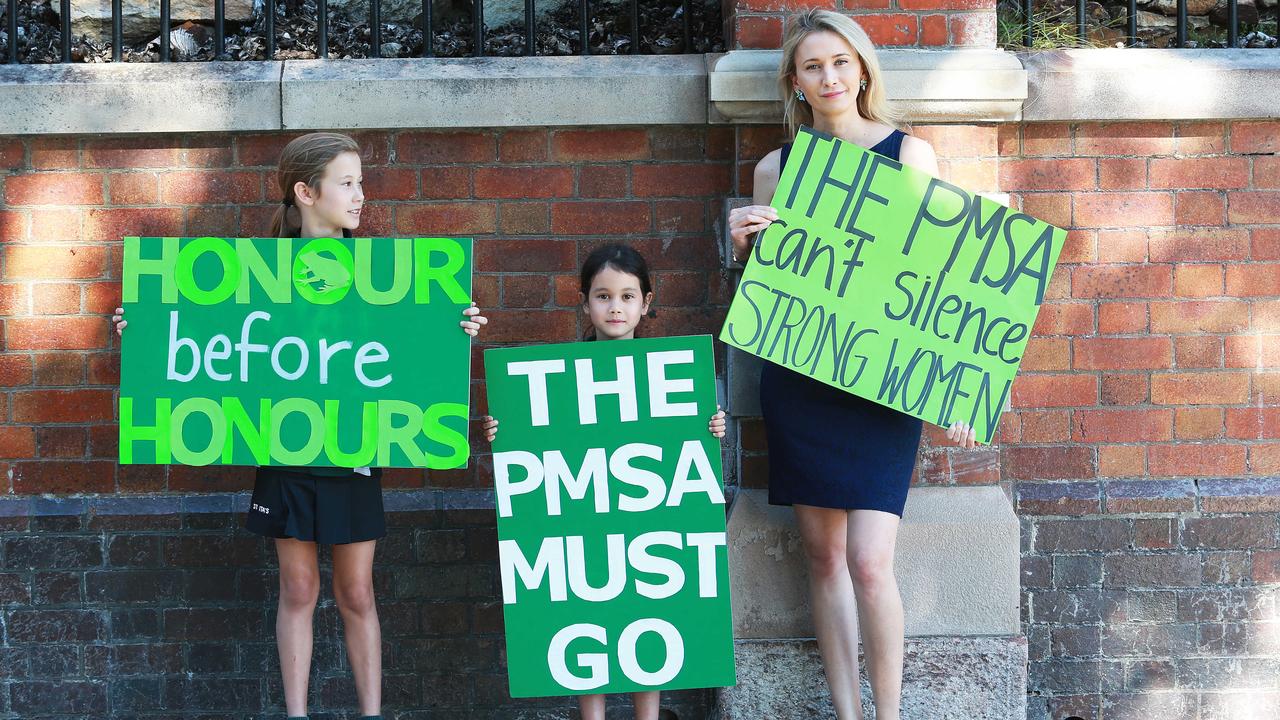
Liz Washington stood outside Somerville House at the peak of the 2017 protests, two of her daughters by her side, with a sign reading, “The PMSA can’t silence strong women”.
This was her school, a part of her identity, and she was there to fight for it.
“I think the PMSA have underestimated the parents that they’re messing with,” she said at the time.
Today, she’s at the school’s cafe, Under the Clock, surrounded by the tradition and old-world grandeur of its historic buildings, reflecting on the fallout.
“There’s been a lot of progress,” says Washington, 40.
“It’s sad that renewal had to occur through what transpired in 2017 but I don’t think change comes without pain in any organisation, especially in really old ones and religious ones,” she says.
Washington became the chair of the Old Girls’ Association in November 2018 and says the group has a stronger voice under the new PMSA and her dealings with Parker and the school’s new principal, Kim Kiepe, are good.
“We can pick up the phone or send an email discussing sensitive matters, and we know we will be heard or consulted,” she says.
The poor treatment of Kearney, “a strong, female leader” had struck at the heart of the symbolism behind the school’s “brand”.
On the flip side, the fact that Old Girls were prepared to rally in defence of their school showed their passion.
“If producing strong, confident women is not a good reason to send your daughter to a school, I don’t know what is!”
Some of those strong women Qweekend spoke with say despite the reforms, there is a strong desire for Somerville House to break ties with the PMSA.
Washington knows this but is less bullish.
“The OGA is hopeful that with good governance, ethical leadership, open communication and collaboration with stakeholders, such measures won’t be necessary in the future.”
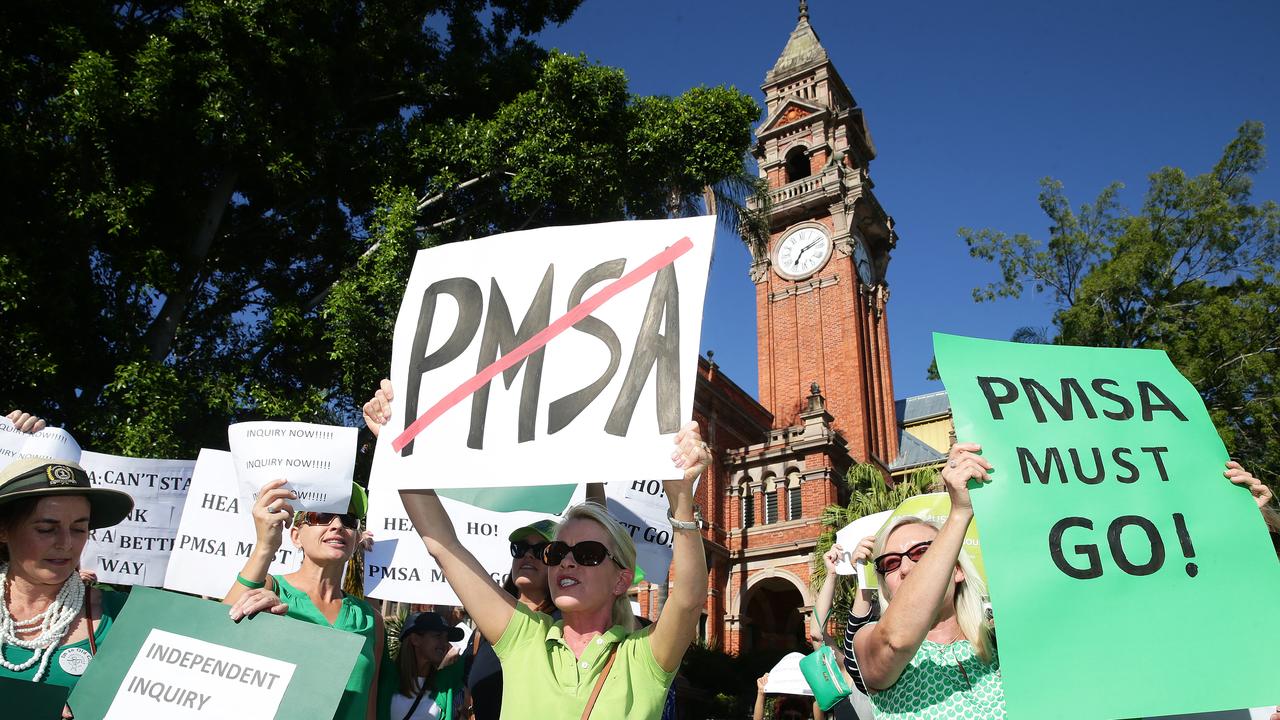
But the Somerville House Foundation has sought a change to the PMSA’s constitution over concerns money it raises could be accessed by the PMSA.
Dominique Layt, the foundation’s chair, says the change was made in August this year after two years of negotiation “to address the perceptions and concerns around the safeguarding of the foundation’s funds”.
She declined to comment further. Skirmishes go on at school level, too, with a recent dispute between the Somerville House P&F and school leadership over the running of the lucrative school uniform store and tuckshops.
The saga of 2017 is not forgotten but for now, Beyond PMSA is “in hibernation” with no officeholders.
Humphrey says it remains in a “state of readiness” to guard against overreach – and the PMSA knows it.
Flo Kearney is now the Head of College and CEO of the University of Queensland’s Women’s College.
She received an undisclosed payout for her Somerville House departure and, after 19 months, a public apology from the PMSA. “We are sorry for the part we played in, and regret the circumstances leading to, Ms Kearney’s early departure,’’ it said.
HOW EVERY SCHOOL PERFORMED IN NAPLAN
Rick Hiley fronted court in October last year on charges of dishonestly obtaining computer data records but the charges were dropped this year.
He received a payout said to reach six figures. His current employment is unknown.
The Apollo Day Spa introduced a no public nudity policy after becoming enmeshed in the unedifying saga, then became the women-only Ahavah Beauty and Spa.
It’s now closed.
The PMSA continues. Bruised, it says it’s learned its lessons. It will strive to do better.
Such is the might of the old school tie brigade, it’s in for a public caning if it doesn’t.





